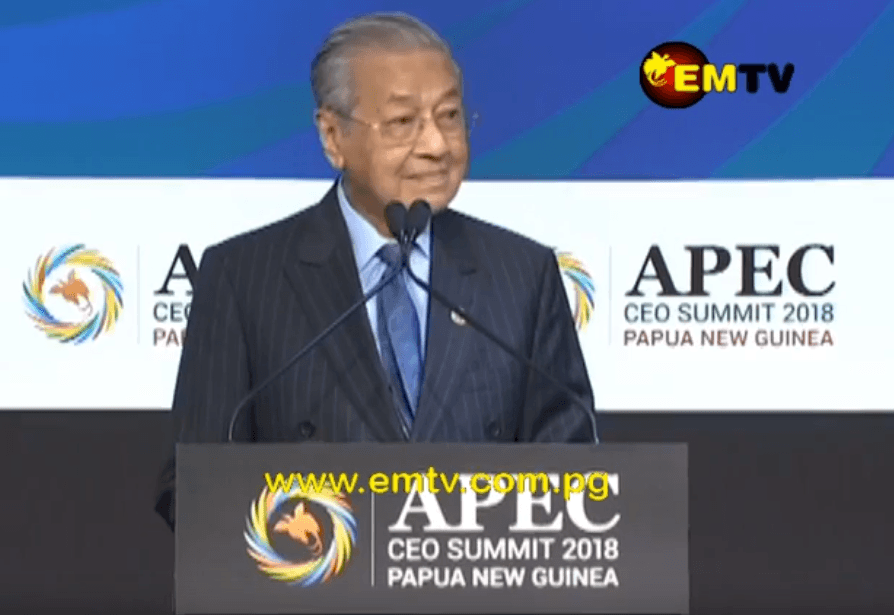By Scott Waide – EMTV News
Malaysian Prime Minister, Mahatir Mohamed, has issued a strong warning at the APEC CEO’s Summit in Port Moresby saying bad technology related policies will widen the inequality gap.
Dr. Mohamed told CEOs and world leaders that new technology should be accessible to national governments and not only large corporations and rich countries.
His message comes as Papua New Guinea struggles with high data costs and the high cost of building ICT infrastructure.
Against the back drop of a trade war between US and China Dr Mahatir Mohamed has expressed concerns about how the future will turn out if new technology isn’t made accessible and affordable.
The Malaysia’s Prime Minster’s statement comes as the US and China drive rise of protectionist trade policies, each guarding their own and making decisions that affect the rest of other region.
Dr Mohamed had one strong message and that was that technology should be accessible and affordable. And that it should be backed by beneficial policies that put people first.
“Affordability and accessibility are key drivers in the widespread adoption of new technology,” says Dr Mohamed.
Dr Mohamed didn’t mine words when he said that technology itself doesn’t create exclusions and and widening socio-economic gaps.
He said bad policies do.
“We must learn from the experience of others about good and bad policies so we can avoid the bad ones,” says Dr Mohamed.
The Malaysian Prime Minster’s message couldn’t have come at a better time, Papua New Guinea’s rapid uptake of mobile phones, increased use of social media and the fast yet erratic push towards digital inclusion of SMEs has left many in bureaucratic and political circles baffled as to how manage Digital Inclusion.
Malaysia’s solution has remained in education and ongoing inclusion.
“The biggest challenge facing any country is to ensure that technology does not widen inequality, for this understanding the technological base is important.
“Education is the answer especially knowledge of artificial intelligence and its application,” adds Mohamed.
For many Papua New Guineans the country is still a long way from Digital Inclusion.
The cost of data and smartphones is still out of reach for many rural areas and Digital Inclusion will only come about when the costs come down and technology is made accessible.


